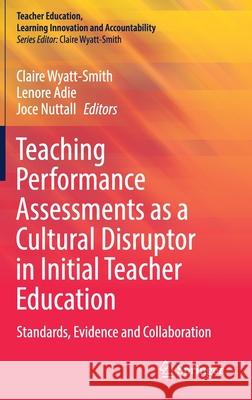Teaching Performance Assessments as a Cultural Disruptor in Initial Teacher Education: Standards, Evidence and Collaboration » książka
topmenu
Teaching Performance Assessments as a Cultural Disruptor in Initial Teacher Education: Standards, Evidence and Collaboration
ISBN-13: 9789811637049 / Angielski / Twarda / 2021 / 200 str.
Teaching Performance Assessments as a Cultural Disruptor in Initial Teacher Education: Standards, Evidence and Collaboration
ISBN-13: 9789811637049 / Angielski / Twarda / 2021 / 200 str.
cena 602,40
(netto: 573,71 VAT: 5%)
Najniższa cena z 30 dni: 578,30
(netto: 573,71 VAT: 5%)
Najniższa cena z 30 dni: 578,30
Termin realizacji zamówienia:
ok. 16-18 dni roboczych.
ok. 16-18 dni roboczych.
Darmowa dostawa!
Kategorie:
Kategorie BISAC:
Wydawca:
Springer
Seria wydawnicza:
Język:
Angielski
ISBN-13:
9789811637049
Rok wydania:
2021
Wydanie:
2021
Numer serii:
000843038
Ilość stron:
200
Waga:
0.54 kg
Wymiary:
23.39 x 15.6 x 1.6
Oprawa:
Twarda
Wolumenów:
01
Dodatkowe informacje:
Glosariusz/słownik
Wydanie ilustrowane
Wydanie ilustrowane











